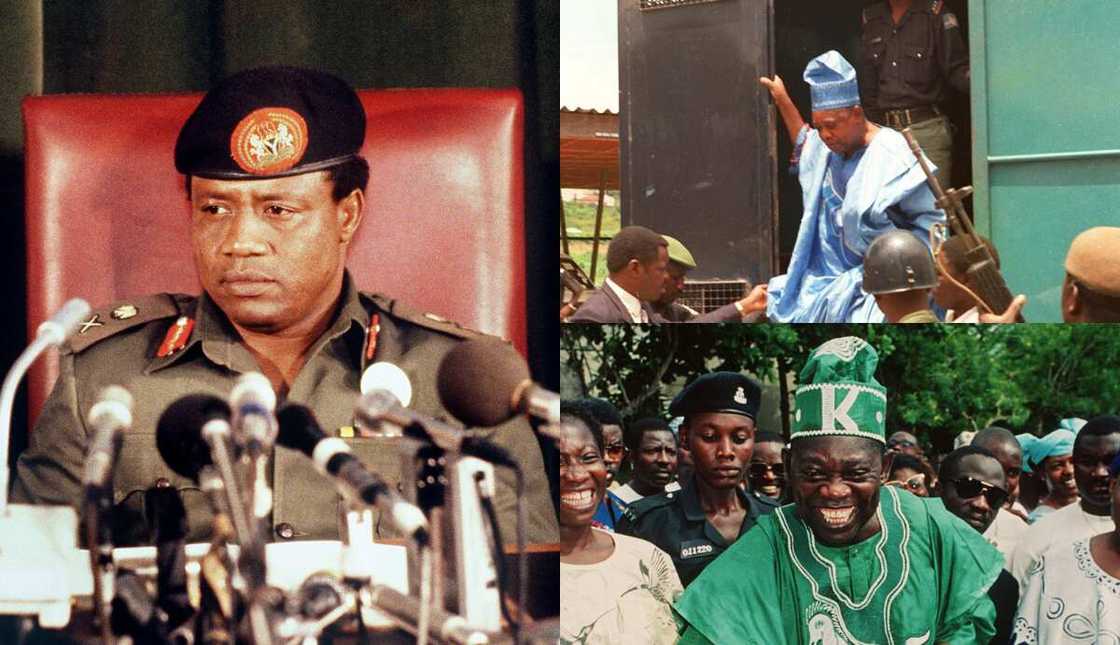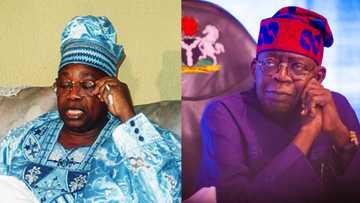Democracy Day: 5 Reasons Why June 12 Is Significant in Nigeria’s History
- Nigeria's pathway to democracy will not be complete if the history of the June 12, 1993, presidential election is not told
- It was a day that marked Nigeria's rebellion against the dictatorial rule of military juntas that lasted for decades
- June 12 is synonymous with Nigeria's freedom from the shackles of mediocrity to decision-making by the people
The history of Nigeria cannot be told without mentioning June 12, a significant date that reshaped the nation's trajectory, making it an iconic date that will forever hold a special place in the hearts of every Nigerian.
It marks Nigeria’s pathway to struggle for democracy, after decades of being under the rule of military juntas and dictators.

Source: Getty Images
In this piece, we will explore five reasons why June 12 is significant in Nigeria's history.
1. The 1993 presidential election
On June 12, 1993, Nigeria held its presidential election, which is widely regarded as one of the fairest and freest in the country's history. The election witnessed a remarkable turnout of voters across ethnic, religious, and regional lines.
The late Chief Moshood Kashimawo Olawale Abiola, a prominent businessman, emerged as the clear winner, receiving massive support from Nigerians who believed in his vision for a better Nigeria.
2. Symbol of unity
Before the advent of Bola Tinubu and Kashim Shettima’s same-faith ticket approach in the build-up to a presidential election, MKO Abiola was the first Nigerian politician to adopt this approach.
Abiola selected an ex-diplomat and former chairman of his party from the north-east, Baba Gana Kingibe, as his running mate.
But what made the difference in the case of Abiola and Kingibe was Nigeria’s unity that cut across ethnic, religious, and regional boundaries. Millions of Nigerians set aside their differences to cast their votes for a leader they believed would bring positive change.
This unity demonstrated the shared aspirations and desire for a more democratic and prosperous nation, reinforcing the significance of June 12 as a symbol of national unity.
3. Struggle for democracy
The annulment of the June 12 election by the military regime led by General Ibrahim Babangida sparked widespread protests and civil unrest across the country. Nigerians from all walks of life took to the streets, demanding the recognition of their democratic choice.
The struggle that ensued became a defining moment in Nigeria's history, highlighting the people's unwavering commitment to democracy and their determination to hold their leaders accountable.
4. The role of Chief MKO Abiola
Chief MKO Abiola, the presumed winner of the June 12 election, became a symbol of resistance and democracy.
He stood as a charismatic figure, rallying Nigerians to fight for the actualisation of their democratic rights.
His imprisonment and eventual death in custody further fueled the resolve of the Nigerian people.
5. Democracy's Restoration and Democracy Day
After several years of military rule, Nigeria experienced a return to democracy on May 29, 1999.
However, it was not until June 6, 2018, under the administration of former President Muhammadu Buhari, that the Nigerian government officially recognised June 12 as Democracy Day.
This decision was made in honour of the significance of the June 12 election and its aftermath, paying tribute to the resilience and sacrifices of Nigerians in the struggle for democracy.
June 12: “Our Democracy Is Deeply Troubled”, Says Peter Obi
Meanwhile, Peter Obi, the Labour Party flagbearer, says Nigeria's present-day democracy does not reflect the plan of its founders.
Obi made this known on Monday, June 12, in his Democracy Day message to Nigerians and his supporters.
The former Anambra State governor noted that there is still hope, and he still believes in a better Nigeria.
Source: Legit.ng





